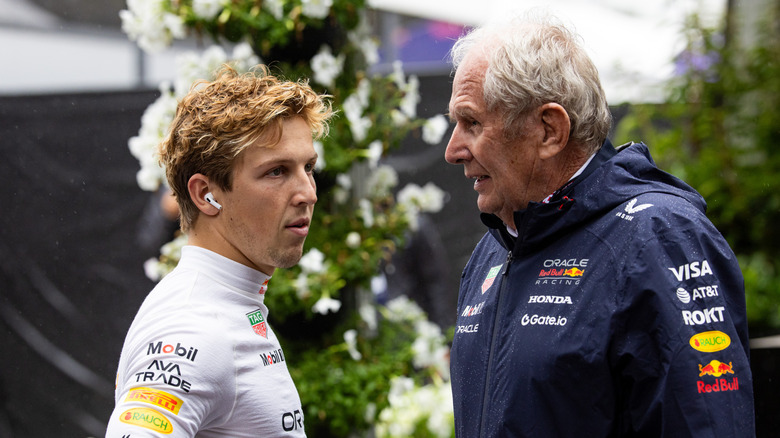
views
Formula 1 fans over the past 15 years have personified the unforgiving nature of remaining a driver in the world championship as Dr. Helmut Marko. However, he knows he can't work forever. Marko suggested four-time F1 champion Sebastian Vettel as his ideal successor as Red Bull's chief motorsport advisor and principal of the company's infamous junior team during the recent race weekend in Saudi Arabia. The 81-year-old Austrian is adamant that Vettel would quickly adapt to the role synonymous with shattering the dreams of aspiring F1 drivers.
Marko's unique position with F1 is primarily due to the Le Mans winner's close relationship with late Red Bull co-founder Dietrich Mateschitz. The junior team was founded in 2001 with Marko at the helm, predating Red Bull Racing by four years. The Austrian energy drinks brand, then and now, is known for sponsoring extreme sports to market itself to young people. Red Bull entered the sport with the stated goal of developing the youngest-ever F1 champion. An effort that led to Vettel winning the 2009 F1 drivers' title. Marko now wants that champion to replace him. According to Motorsport.com, Marko said on a German F1 broadcast:
"I think he would be the ideal successor candidate. It is clear that at some point you can no longer do it, not least because of your age. Because those travel efforts are no small thing."
"Of course, it would be great if a guy like Sebastian could take over. You have the side of the junior program, he's already working with girls here in the go-karts in Saudi Arabia. On the other side, of course, there's the great strategic leadership of his Formula 1 team."
![Sebastian Vettel drives a kart in the #RACE4WOMEN [CHALLENGE ME] event during previews ahead of the F1 Grand Prix of Saudi Arabia at Jeddah Corniche Circuit on April 16, 2025 in Jeddah, Saudi Arabia](https://www.jalopnik.com/img/gallery/sebastian-vettel-could-become-red-bulls-next-f1-tyrant-according-to-helmut-marko/vettels-image-is-at-odds-with-f1-driver-academys-goals-1745269290.jpg) QIAN JUN/Shutterstock
QIAN JUN/Shutterstock
As Marko mentions, Vettel was in Jeddah for the race weekend and organized a karting event to encourage Saudi girls to participate in racing. It's a massively progressive event considering that women didn't have the right to drive in Saudi Arabia until 2018. It's illustrative of how Vettel used his position during the later stages of his F1 career and since his retirement in 2022. He advocates for social progress as well as environmentalism. Vettel refuses to use fossil fuels, driving his collection of historic racing cars with only sustainable fuels.
Vettel succeeding Marko could tarnish the public image he built for himself. While "driver academy" is the commonly used term for an F1 team's driver development program, it's a misnomer compared to its intended purpose. The term creates the expectation that every prospect who enters an academy will eventually graduate to F1. This isn't the case. The Red Bull Junior Team provides financial and professional support to drivers in exchange for the right of first refusal for an F1 contract. This ensures that when a race seat is available, Red Bull can promote the best prospect available at little cost. As a result, academy rookies are typically the lowest-paid drivers in F1, and teams are wary of hiring drivers outside their in-house pools.
 Jayce Illman/Getty Images
Jayce Illman/Getty Images
The Red Bull Junior Team remains a favored landing spot among young drivers because of its unmatched resources. Most notably, Red Bull has two F1 teams, offering a far greater chance of graduating. Since Vettel left Red Bull for Ferrari after the 2014 season, Red Bull has promoted eight drivers to F1. Over the same time period, Mercedes has promoted four drivers. McLaren and Ferrari have had three junior team graduates each. To promote so many drivers, Marko has had to fire drivers to free up seats. The demotion of Liam Lawson from Red Bull Racing to Racing Bulls after only two races shows just how quick Marko is to drop a young driver. While Vettel certainly wouldn't be as harsh a critic to young drivers, he would have to systematically transform how Red Bull operates in F1 to avoid being viewed as an unforgiving headmaster chewing through a conveyor belt of students.















Facebook Conversations